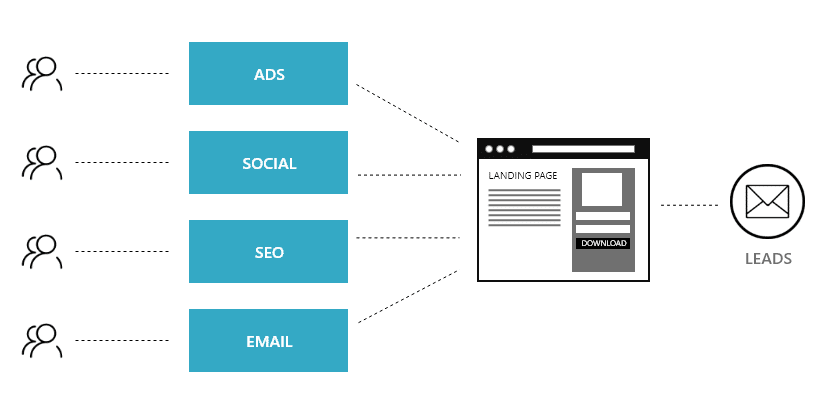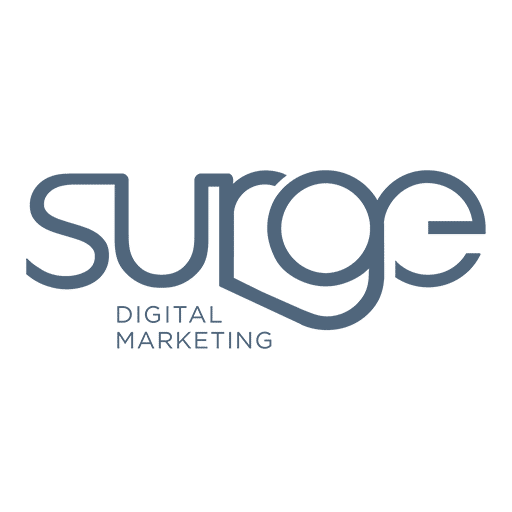How do You Get More Business Leads and Grow Sales?
Customer acquisition is increasingly more and more challenging, especially with everything going upside-down and businesses still trying to find their feet due to the Covid-19 pandemic.
If your business is to remain afloat in the current environment, you will need a creative way to generate a steady influx of business enquiries. A Lead generation strategy will help you achieve that in a cost-effective and scalable way.
What is lead generation?
Lead generation is the process of attracting potential customers to your business and turning them from passive observers into interested buyers. the process can include a wide array of tactics ranging from driving traffic to opt-in forms on optimized landing pages to collecting personal information on lead generation forms on social media.
And a lead …
A lead is an individual or organization that a company considers a potential customer, who has completed some sort of action to indicate they might be interested in their products or services.
Lead Generation Process at a Glance
In lead generation, the process involves reaching out to “strangers” through various digital marketing channels, with the aim of stimulating and capturing interest in a product or service and develop a sales pipeline. Here is a graphic to illustrate the process.

The Importance of Lead Generation
You need to generate leads for sales, which in turn ensures business existence and growth. Your current customers are already buying your products/services, yes, but it’s not enough. You need new people who are also interested in buying. That’s what lead generation gets you. In that regard, lead generation is very important.
There are several other reasons lead generation matters so much to business:
- Target the right customers – Companies can focus their resources on targeting specific markets, which in turn will save money and increases sales (improved ROI).
- Increased awareness – Lead generation can also build brand awareness and reputation. When people discover your brand, you will be able to supply them with more information regarding product features and benefits.
- Opportunity to collect valuable prospect information – Lead generation has the potential to gather important marketing information from prospects. Customer information such as needs wants, and preferences can assist you in tailoring your product or service to suit your customers’ needs.
- Costs less than other advertisements – Since advertising is a requirement for a successful business, it is important for companies to select the most convenient marketing strategy that will be cost-effective and produce better results. Lead generation offers that option.
How to Generate Quality Leads?
Generating quality and more qualifiable leads is the secret to generating more revenue from marketing.
Lead quality starts from the moment someone hits your website. In other words, the quality of your leads is dependent on the quality of your traffic. So, the first step in improving the quality of your leads is to improve the overall campaign targeting.
To help in further refining the quality of your leads, here are some tips that help generate high-quality sales leads.
Learn to Differentiate between Inquiries and Leads
A raw inquiry could be any contact generated by the marketing team. It could have bogus phone numbers or email IDs or contact info of someone who is not your target audience. But an accepted lead is one that contains valid and desirable contact information for the sales guys to work upon. It is the job of the marketing department to ensure that only legitimate and accepted leads are loaded in the lead tracking system.
Separate out Marketing Leads from Sales Leads
Marketing leads are those which need to be nurtured and cultivated over time to make them sales-ready. They are in the early stage of the buying cycle and might require additional information or content. Email or Social Media could be the best mediums to nurture the existing marketing leads.
On the contrary, sales leads can be referred to prospects who are further along the buying cycle and are ready to interact with a salesperson.
Keep the Definition of “Qualified Leads” uniform for both Sales and Marketing
It is crucial for the sales and marketing teams to agree on a common definition of “Qualified Leads”.
Sales teams should only focus on leads who are ready and willing to buy. Selling to prospects who don’t need your product would unnecessarily extend sales cycle and eat up valuable time of sales resources. Marketing should focus on nurturing leads that are very less likely to buy now.
Put into Action a Lead Scoring System
Opt for an automated lead management system that can prioritize all your leads based on lead scoring. But make sure that the scoring process is adaptable to the ever-changing industry and customer demands. Based on a methodology agreed upon by both marketing and sales, rank and assign a score to leads according to their interest levels and sales-readiness.
Engage in Lead Nurturing
All salespeople would agree that most of the prospects require further nurturing before they become completely sales-ready. Marketers need to establish and nurture their relationships with those prospects at every stage of the sales funnel and through every step of the buyer’s journey to make them qualified.
Use Lead Qualification Questions
Sales team should not always assume that the leads passed on to them by Marketing are qualified and “Sales-Ready”. In order to ensure that a lead is qualified enough, they should adopt the ANUM(Authority, Need, Urgency, Money) methodology and ask them lead qualification questions accordingly.
Run Effective Lead Generation Campaigns
Quality leads that have an interest in your product or service are already in the market and ready to make a purchase. Acquiring these high-quality leads will assist your business in boosting sales and ROI.
Get started by booking a free lead generation strategy session with Surge Digital.

